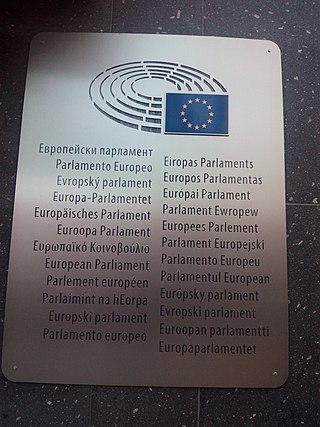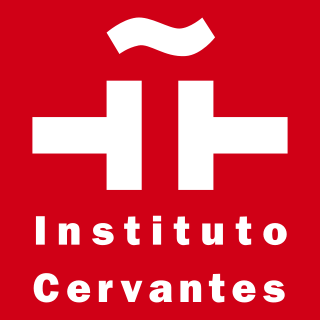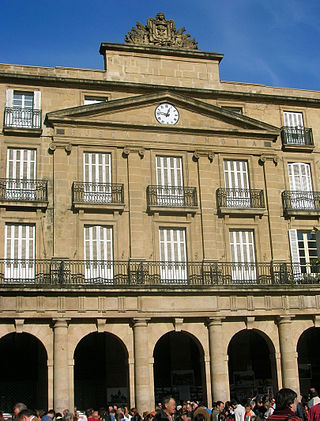EIZIE stands for Euskal Itzultzaile, Zuzentzaile eta Interpreteen Elkartea; that is, the Association of Translators, Correctors and Interpreters of the Basque Language.
The Association was founded in 1987 by a small group of Basque professional translators who believed that it was important to provide a formal structure for this growing professional sector. Its first president was Juan Mari Lekuona (Oiartzun, 1927 – San Sebastián, 2005).
The Association, which is officially registered in both Spain and France, consists of professional translators whose original or target language is Basque. In 2007, the Association had approximately 300 members who work professionally in areas such as literary, scientific, audiovisual, legal and administrative translation, among others.
The board of the Association renews its mission every two years, and is composed of a president, vice president, secretary, treasurer and four members, all elected by the membership. The members of EIZIE also carry out various commissioned works.
EIZIE provides legal advice to its members in areas related to intellectual property, taxes, contracts, etc. Additionally, it regularly offers training courses on different areas of translation, including training in modern technologies that assist in translation.
EIZIE sponsors or issues the following publications:
EIZIE receives financial assistance from the following institutions:

Bernardo Atxaga, pseudonym of Joseba Irazu Garmendia, is a Spanish Basque writer and self-translator.

The European Union (EU) has 24 official languages, of which three – English, French and German – have the higher status of "procedural" languages of the European Commission. Irish previously had the lower status of "treaty language" before being upgraded to an official and working language in 2007. However, a temporary derogation was enforced until 1 January 2022. The three procedural languages are those used in the day-to-day workings of the institutions of the EU. The designation of Irish as a "treaty language" meant that only the treaties of the European Union were translated into Irish, whereas Legal Acts of the European Union adopted under the treaties did not have to be. Luxembourgish and Turkish, which have official status in Luxembourg and Cyprus, respectively, are the only two official languages of EU member states that are not official languages of the EU. In 2023, the Spanish government requested that its co-official languages Catalan, Basque, and Galician be added to the official languages of the EU.
The American Literary Translators Association (ALTA) is an organization in the United States dedicated to literary translation. ALTA promotes literary translation through its annual ALTA conference and year-round events structured around the creation of high-quality art. ALTA also administers awards to recognize excellence in translation and provides fellowships and mentorships to support emerging translators.
The American Translators Association (ATA) is the largest professional association of translators and interpreters in the United States with nearly 8,500 members in more than 100 countries.

Hankuk University of Foreign Studies is a private research university based in Seoul, in South Korea. The university currently teaches 45 foreign languages. In addition, it contains studies in humanities, law, political science, social sciences, business, medical science, natural sciences, and engineering.

Instituto Cervantes is a worldwide nonprofit organization created by the Spanish government in 1991. It is named after Miguel de Cervantes (1547–1616), the author of Don Quixote and perhaps the most important figure in the history of Spanish literature. The Cervantes Institute is the largest organization in the world responsible for promoting the study and the teaching of Spanish language and culture.

Euskaltzaindia is the official academic language regulatory institution which watches over the Basque language. It conducts research, seeks to protect the language, and establishes standards of use. It is known in Spanish as La Real Academia de la Lengua Vasca and in French as Académie de la Langue Basque.

Yerevan State University, also simply University of Yerevan, is the oldest continuously operating public university in Armenia. Founded in 1919, it is the largest university in the country. It is thus informally known as Armenia's "mother university". Of its 3,150 employees, 1,190 comprise the teaching staff, which includes 25 academicians, 130 professors, 700 docents, and 360 assistant lecturers. The university has 400 researchers, 1,350 post-graduate students, and 8,500 undergraduates, including 300 students from abroad.

Yerevan Brusov State University of Languages and Social Sciences, is a public university in Yerevan, the capital of Armenia, operating since 1935. It is named after the Russian poet and historian Valery Bryusov since 1962.
A certified translation is one which fulfills the requirements in the country in question, enabling it to be used in formal procedures, with the translator accepting responsibility for its accuracy. These requirements vary widely from country to country. While some countries allow only state-appointed translators to produce such translations, others will accept those carried out by any competent bilingual individual. Between these two extremes are countries where a certified translation can be carried out by any professional translator with the correct credentials.

The Literature Translation Institute of Korea was founded in 1996 by the Government of South Korea with the aim of promoting Korean literature and culture overseas.
The Instituto de Letras is a teaching unit of the Federal University of Rio Grande do Sul, located in the Campus do Vale, Porto Alegre, Brazil. It was created in 1970 as the Central Institute of Letters with the following departments: Classical and Vernacular Letters, Modern Languages and Linguistics and Philology. The bachelor's degree course was created in 1973 and recognized in 1977, which created the qualification of Translator and Interpreter. The institute now offers undergraduate and postgraduate courses in a diverse range of language studies, such as Linguistics, Philology and Literary Theory.
Mediterranean Editors and Translators (MET) is a non-profit, interdisciplinary association for language professionals who work mainly with or into English within the Mediterranean area. The association's members include translators, authors' editors, copy editors, writing and presentation coaches, teachers of academic writing, applied linguists, interpreters, professional writers and more. MET offers training workshops, an annual conference, networking and other opportunities of continuing professional development for its members. The activities of the association are guided by six objectives, summarized as follows:

The Institute of Intercultural Management and Communication or ISIT, formerly Institut Supérieur d’Interprétation et de Traduction, is a French Grande École of Paris-Panthéon-Assas University.

Lourdes Auzmendi Aierbe is a translator, interpreter and politician. She is best known as the Basque government's Deputy Minister for Linguistic Policy.

The Mexican Translators Association is a non-profit organization established in 1992 to promote professionalism in translating and interpreting. The current headquarters are at the Western Chapter, located in Guadalajara, Jalisco.

The Basque Summer University is a university institution created in 1973, which works to promote extensive use of Basque language at the university level. It promotes courses, book publications, Internet services, congresses, professional meetings and postgraduate degrees at university level and in Basque. It offers university courses in collaboration with the University of the Basque Country, Mondragon University, Public University of Navarra, the University of Pau and Pays de l'Adour in Bayonne, and Basque Wikipedia.
The Etxepare Basque Institute is a public agency created by the Basque Government. The institute is named after Bernat Etxepare, author of Linguae Vasconum Primitiae (1545), the first book to be published in the Basque language, or Euskara. The phrase that defines the Institute can be found in that first book: "Heuscara/Ialgi hadi mundura".

Arantza Díaz de Ilarraza Sánchez is a professor of informatics at the University of the Basque Country. In 1981, she began her work as a lecturer at the Faculty of Informatics of Donostia. As a specialist in language and computer technology, she has held positions of responsibility in Basque technology institutions.
The current concept of Korean Literature (한국문학) focuses mostly on the literary work evolved within South Korea, its translation and gradual transition into 'World Literature' caused by the national globalisation drive, commonly known as 'Segyehwa' (세계화).